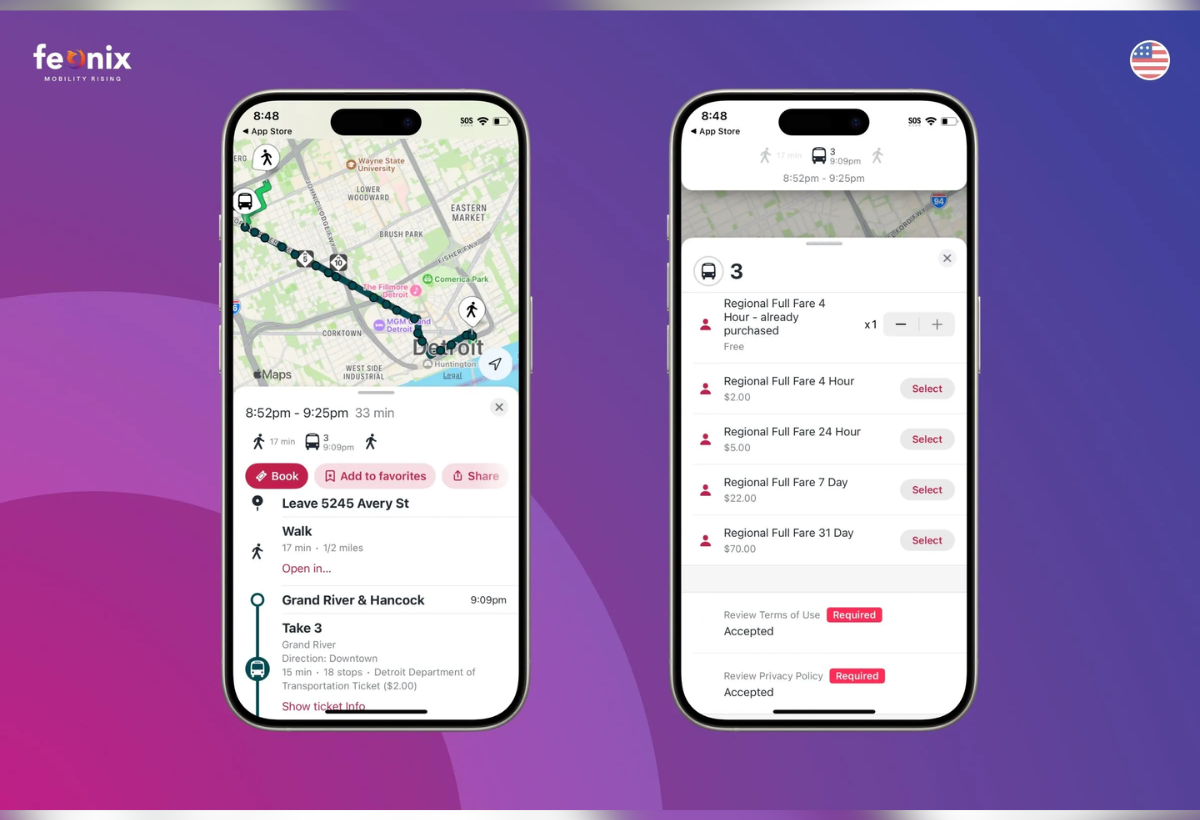In today’s fast-paced world, commuters demand more than just transport from point A to point B; they seek a seamless, efficient, and integrated travel experience. Account-Based Ticketing (ABT) emerges as an innovative solution to meet these expectations, transforming how passengers interact with transport systems.
This article looks into the essence of ABT, its benefits, the challenges service providers face in its implementation, and how technology solutions can facilitate a successful and cost-effective transition.

Understanding Account-Based Ticketing (ABT)
Account-Based Ticketing is a modern fare collection system where the proof of a passenger’s eligibility to travel is stored in a back-office account rather than on a physical ticket or device. Instead of purchasing traditional tickets or passes, passengers authenticate themselves through various means—such as contactless bank cards, mobile devices, or wearables—and the system calculates and charges the appropriate fare based on their travel.
Enhancing the Travel Experience Through ABT
Seamless Multi-modal Journeys
ABT enables passengers to navigate across different modes of transport—buses, trains, trams, ferries—using a single account. This integration simplifies the journey planning process, reduces the need for multiple tickets or passes, and eliminates the confusion associated with disparate fare systems.
Convenience and Flexibility
With ABT, passengers no longer need to worry about carrying cash or understanding complex fare structures. The system automatically applies the best fare rules, ensuring they receive the most cost-effective rate for their travel.
Real-time Account Management
Passengers gain access to real-time information about their travel history, expenditures, and account balance. This transparency fosters trust and empowers users to manage their transport expenses effectively.
Benefits to Passengers
- Simplified access: One account provides access to all participating transport services.
- Cost savings: Automatic fare capping and best fare calculations prevent overcharging.
- Enhanced experience: Reduced queue times and the elimination of physical ticket purchases streamline the journey.
- Personalisation: Tailored travel suggestions and updates improve overall satisfaction.
Challenges in Adopting ABT Systems
Technical Challenges
Upgrading legacy systems to support Account-Based Ticketing (ABT) requires significant technical adjustments for transport agencies. Integrating new ABT solutions with existing infrastructure can be complex, as outdated systems may not readily accommodate modern technologies. Protecting sensitive passenger information is paramount in this digital transition, necessitating robust cybersecurity measures to safeguard data against breaches and unauthorised access. Additionally, ensuring interoperability poses its own set of challenges; seamless operation across different transport modes and operators demands meticulous planning and execution to achieve a fully integrated system.
Financial Challenges
The financial implications of implementing ABT systems are considerable. The upfront investment needed for new infrastructure, software development, and hardware deployment can be substantial, often straining the budgets of transport service providers. Justifying this expenditure hinges on a clear understanding of the long-term benefits and potential cost savings to ensure a favorable return on investment (ROI). Securing the necessary funding adds another layer of complexity, as agencies may need to navigate government support channels or establish public-private partnerships, both of which can be time-consuming and uncertain.
Operational Challenges
Operationally, the shift to ABT systems demands comprehensive changes within an organisation. Staff training becomes essential to equip employees with the skills required to manage and maintain the new technology effectively. Simultaneously, customer education is crucial; passengers must be informed and guided through the new system to ensure smooth adoption and minimise confusion or frustration. Maintaining high levels of service uptime is also critical; any disruptions can undermine passenger confidence and satisfaction, making system reliability a top priority during and after the transition.
Solutions to Streamline the Transition
- Phased implementation: Gradually introducing ABT allows for adjustments and reduces risks associated with large-scale rollouts.
- Stakeholder engagement: Involving all parties—operators, staff, and passengers—ensures that the system meets user needs and expectations.
- Leveraging open standards: Utilising open architecture and standards promotes interoperability and future-proofs the investment.
- Partnering with experts: Collaborating with experienced solution providers like SkedGo can mitigate risks and enhance system capabilities.
Key Considerations for Successful ABT Migration
- Scalability: Ensure the system can handle growth in user numbers and expanded services.
- User-centric design: The system should prioritise ease of use to encourage adoption.
- Data management: Implement strong data governance policies to protect user information and comply with regulations.
- Cost efficiency: Analyze total cost of ownership, including maintenance and operational expenses.
- Vendor collaboration: Choose solution providers with a proven track record and a collaborative approach to customisation and support.
How We Support Efficient and Cost-effective ABT
SkedGo offers a comprehensive suite of products designed to support and enhance ABT systems:
Multi-modal Integration Platform
Our platform seamlessly integrates all required transport modes, enabling the unified operation essential for ABT. It supports real-time data exchange and interoperability between different systems and operators.
User-friendly Technology
SkedGo develops intuitive journey planning and booking solutions that serve as a single point of access for passengers. Easily integrated account management, journey planning, and third party fare payment options enhance the user experience.
Advanced API, SDK and White Label Solutions
Our technology has been specifically developed to allow for easy integration with existing systems, reducing the technical barriers to ABT adoption. They can support customisable fare rules, payment processing, and data analytics.
Data Security and Compliance
SkedGo prioritises data protection, employing advanced encryption and security protocols to safeguard user information and ensure compliance with data privacy regulations.
Consultancy and Support Services
We offer expert guidance throughout the implementation process, from initial planning to post-deployment support. Our team works closely with ticketing solution providers to tailor products that meet specific operational needs and budget constraints.
By Leveraging SkedGo’s solutions, Service Providers can:
- Reduce implementation costs: Our scalable and modular systems minimise upfront investment and allow for incremental upgrades.
- Enhance operational efficiency: Automation and streamlined processes reduce administrative burdens and operational costs.
- Improve ROI: Enhanced user satisfaction and increased passengership contribute to better financial outcomes.
- Stay ahead with innovation: Continuous updates and innovations keep the system current with emerging technologies and user expectations.
Conclusion
Account-Based Ticketing represents the future of public transport, offering convenience and efficiency for both passengers and providers. While the path to implementation presents challenges, the benefits of enhanced user experience, operational efficiency, and cost savings make it a worthwhile investment. SkedGo stands as a trusted partner in this journey, providing the expertise and innovative solutions necessary to navigate the complexities of ABT adoption. Together, we can pave the way for a more connected, efficient, and user-friendly transport ecosystem.
This article was originally published by SkedGo.















